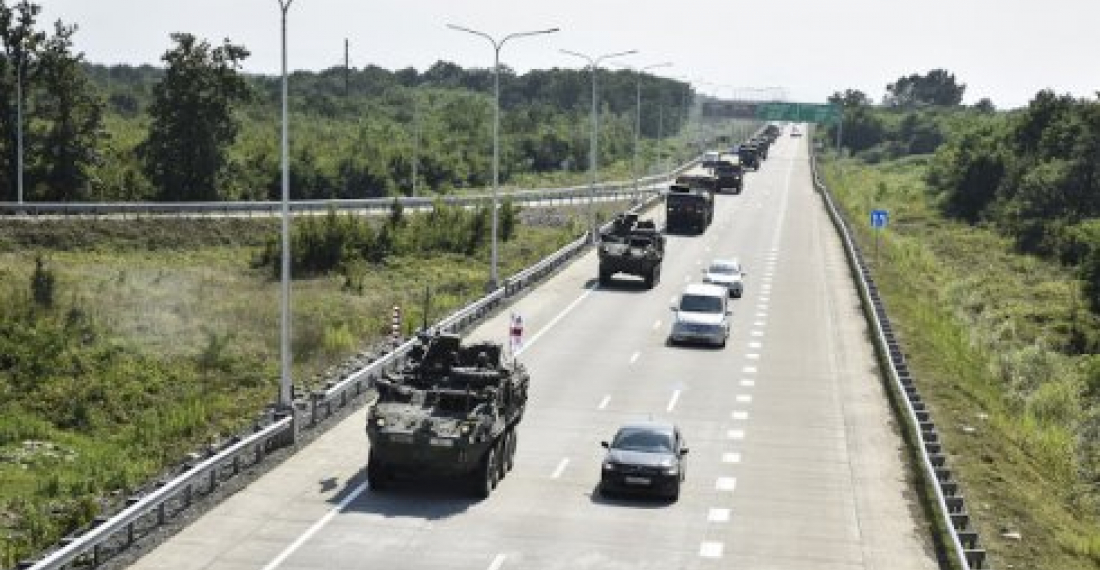In a show of force, and in solidarity with Georgia, NATO forces are this week conducting military exercises in the South Caucasus country.
The exercises called "Noble Partner 2017" , involve more than two thousand eight hundred troops from 8 NATO and NATO-partner countries
Heavy American military equipment of the US 2nd Cavalry Regiment, including tanks, artillary and armoured vehicles, landed on Georgia's Black Sea coast throughout the week, and were transported by rail, or driven, to the Vaziani Military base at the centre of the country where the military drills will take place starting today and lasting until 12 August. The drills will involve live fire exercises and airbourne operations.
Travellling on the main West-East highway which connects the capital Tbilisi to the western part of the country NATO equipment passed within a few hundred meters of Russian forces deployed in the secessionist territory of South Ossetia. In 2008, during the peak of the short Georgia-Russia War, Russian troops stumbled on the road, causing fears that the Russians were trying to cut Georgia in two. They however quickly withdrew back a few hundred meters to the old boundary lines of the former Soviet oblast of South Ossetia, where they remain.
Among the countries participating in the drills is Russia's military ally Armenia, which however also participates in NATO's Partnership-for Peace programme. Other participating countries include the UK, Germany and Turkey. Azerbaijan was initially due to also participate in the exercises but it pulled out at the last moment, most likely due to Armenia's participation.
source: commonspace.eu with various military sources.
photo: US armoured personal carriers passing close by the administrative border of the secessionist Republic of South Ossetia, which is patrolled by Russian forces.






